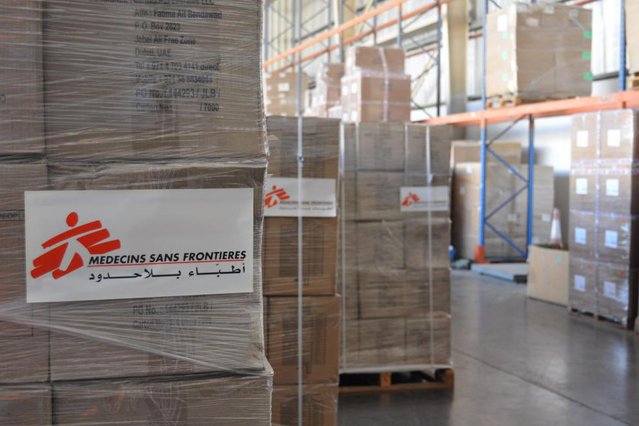I would like to offer MSF a donation in kind. What should I do?
MSF appreciates your gesture and thanks you for your initiative. Experience has shown us that such donations often consist of items such as food, clothing, tents and blankets. Unfortunately, donations of this kind can pose problems for MSF. First and foremost, MSF tailors the goods with which it supplies its field projects to the actual demand as assessed on the spot. Donated food, clothing and other goods may not be appropriate to the local climate or culture. Secondly, in order to maximize efficiency and effectiveness so as to yield the best results from the funds entrusted to us, MSF works with standard drugs in specific dosages, and other specific goods from fixed suppliers, with preferred distribution methods. With donations, the chances are very slim that we can get exactly what we need to ensure the most effective way of working. For instance, used clothes and blankets can be subject to import regulations that require fumigation. If not processed accordingly, these items can be refused entry into the country, delaying life-saving supplies such as drugs that have been placed in the same consignment.
To safeguard the quality of the medicines and other medical goods that we use, these products have to comply with strict requirements in terms of shelf life, expiry date and storage conditions. With donated goods we cannot fully guarantee how they have been stored until the moment of use. As a result, we often have to refuse donations of medical goods. In particular, as MSF respects the medical code of conduct, we cannot accept donations of drugs or other medical goods that are past their expiry date.
When you think, after reading above, that you still have an offer for MSF that is worth sharing, you can contact the MSF Amsterdam Procurement Unit by using the email link in the contact section.
What types of products does MSF need for its projects?
The MSF Amsterdam Procurement Unit maintains a catalogue of products, called the Green List, which consists of approximately 4,800 articles grouped together in various product groups and families. For instance, in the "Drugs" group, items are subdivided into product families such as "Oral drugs/medicines", "Vaccines", "Disinfectants" and "Infusions". Medical products make up 50% of the items on the Green List. A tactical procurement officer and a product specialist are assigned to each product group to make sure that the items in the group match the most common needs of the MSF field projects and that new product developments are picked up quickly. Regular meetings between tactical procurement officers and product specialists ensure that the Green List is constantly updated. MSF frequently provides its field projects with updates of the Green List.
Does MSF use tendering procedures?
The field projects that the MSF Amsterdam Procurement Unit supplies sometimes require specific goods, which in turn can necessitate the use of specific suppliers. Often there is only a limited number of suppliers that have adapted to MSF's needs and can offer the required flexibility. For reasons of quality, where medical goods are concerned a contract can often only be assigned to one particular supplier. The MSF Amsterdam Procurement Unit does occasionally open a tendering procedure, often in an international context along with other MSF operational centres and the other European supply centres. Usually these tendering procedures will apply to product groups or categories that are highly suited to such procedures, such as tents, bed nets, jerrycans and computer and communications equipment. However, in many cases tendering procedures will be restricted to pre-qualified suppliers.
Can MSF assist with transporting material to be provided as a charitable initiative by an organization or private person?
Now and then, MSF receives requests to transport materials free of charge to a country in support of a charitable initiative by an organization or private person. Unfortunately, we are unable to grant such requests.
MSF, like anyone else, has to pay the market price for transport services when transporting medical and non-medical goods by air or sea to its projects. This includes additional onward transportation charges from the port or airport to the final destination, which may be even greater than the costs of the initial carriage by sea or air. On top of this, there are further costs to consider, such as for the services of the forwarding agent who clears the shipment through customs, and for temporary storage during the clearing procedure while awaiting onward transportation, as well as any import duties and local taxes that may be due. The fact of being an aid organization shipping humanitarian cargo does not exempt MSF from paying these costs.
As an organization focused on beneficiaries and funded by money donated by others, MSF must be transparent and accountable in procurement and transportation processes and practices, and in the use of funds. We would find it hard to justify any non-MSF expenses to our donors, but we also have to take into account that transporting goods on others’ behalf could pose risks for our operational activities. For example, incorrect paperwork for such goods could hold up our entire cargo, including much-needed medicines.
We suggest you contact the not-for-profit forwarding agent Mission & Relief Logistics. They are a good source of information and may be able to offer groupage services at reduced cost for small quantities of goods that would not fill a whole shipping container. They can also provide you with advice on expenses additional to direct freight costs.



